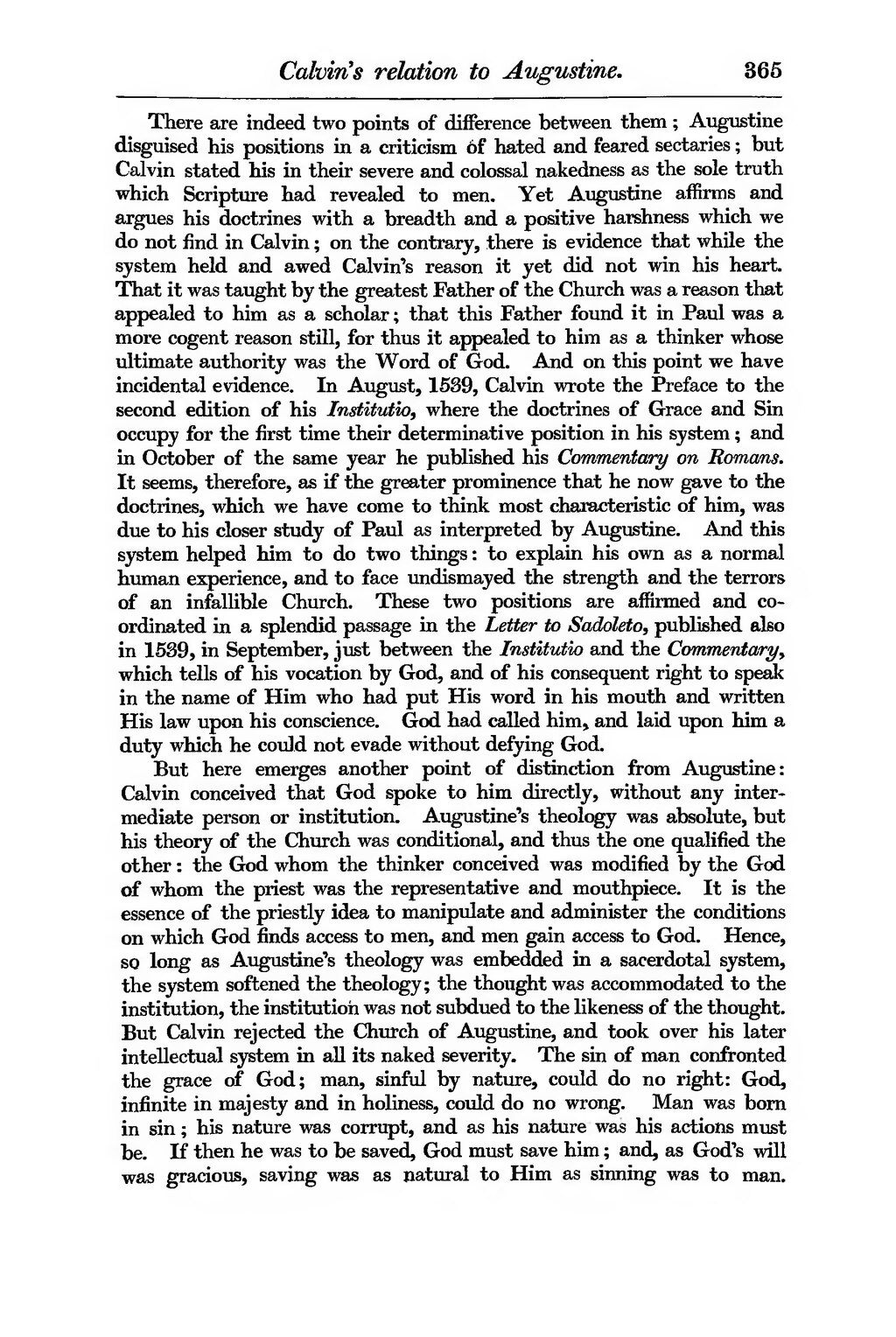There are indeed two points of difference between them; Augustine disguised his positions in a criticism of hated and feared sectaries; but Calvin stated his in their severe and colossal nakedness as the sole truth which Scripture had revealed to men. Yet Augustine affirms and argues his doctrines with a breadth and a positive harshness which we do not find in Calvin; on the contrary, there is evidence that while the system held and awed Calvin's reason it yet did not win his heart. That it was taught by the greatest Father of the Church was a reason that appealed to him as a scholar; that this Father found it in Paul was a more cogent reason still, for thus it appealed to him as a thinker whose ultimate authority was the Word of God. And on this point we have incidental evidence. In August, 1539, Calvin wrote the Preface to the second edition of his Instltutio, where the doctrines of Grace and Sin occupy for the first time their determinative position in his system; and in October of the same year he published his Commentary on Romans. It seems, therefore, as if the greater prominence that he now gave to the doctrines, which we have come to think most characteristic of him, was due to his closer study of Paul as interpreted by Augustine. And this system helped him to do two things: to explain his own as a normal human experience, and to face undismayed the strength and the terrors of an infallible Church. These two positions are affirmed and coordinated in a splendid passage in the Letter to Sadoleto, published also in 1539, in September, just between the Instltutio and the Commentary, which tells of his vocation by God, and of his consequent right to speak in the name of Him who had put His word in his mouth and written His law upon his conscience. God had called him, and laid upon him a duty which he could not evade without defying God.
But here emerges another point of distinction from Augustine: Calvin conceived that God spoke to him directly, without any intermediate person or institution. Augustine's theology was absolute, but his theory of the Church was conditional, and thus the one qualified the other: the God whom the thinker conceived was modified by the God of whom the priest was the representative and mouthpiece. It is the essence of the priestly idea to manipulate and administer the conditions on which God finds access to men, and men gain access to God. Hence, so long as Augustine's theology was embedded in a sacerdotal system, the system softened the theology; the thought was accommodated to the institution, the institution was not subdued to the likeness of the thought. But Calvin rejected the Church of Augustine, and took over his later intellectual system in all its naked severity. The sin of man confronted the grace of God; man, sinful by nature, could do no right: God, infinite in majesty and in holiness, could do no wrong. Man was born in sin; his nature was corrupt, and as his nature was his actions must be. If then he was to be saved, God must save him; and, as God's will was gracious, saving was as natural to Him as sinning was to man.
